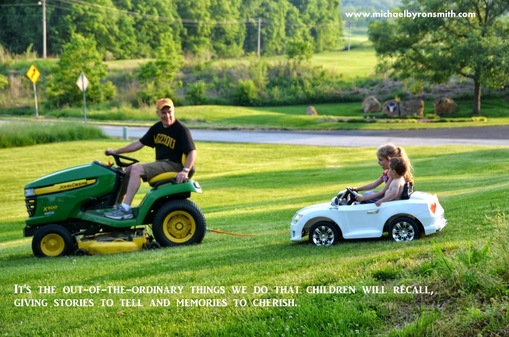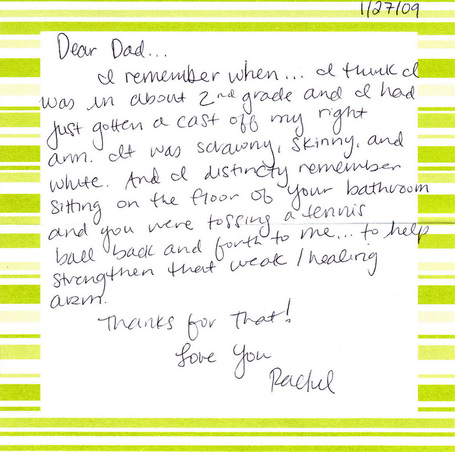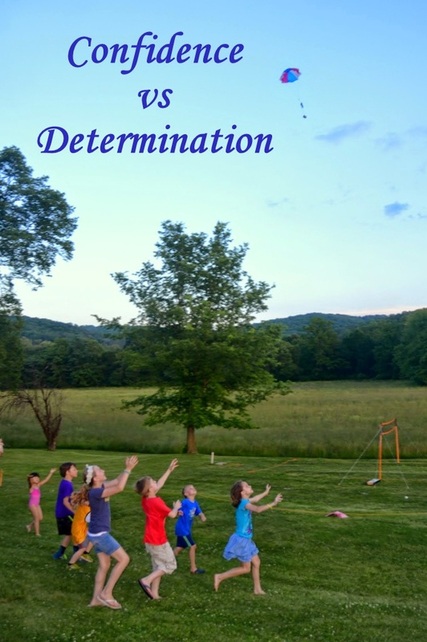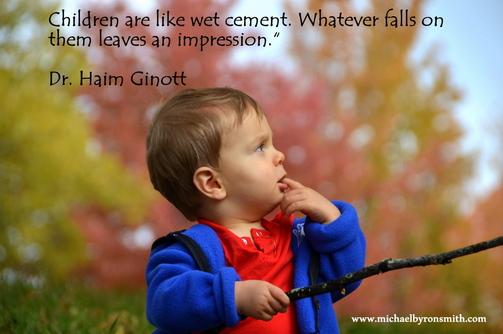 Photo: Rachel McCarthy
Photo: Rachel McCarthy When I first entitled this article, I called it “Random Acts of Parenting”. Then I thought, no, that’s what my father did. He showed up occasionally then disappeared again, often for months. My father didn’t even meet the base requirements of parenting. He was visiting, not parenting. It’s tough to talk about my father like that because I still loved him, even though he wasn’t interested enough in our well-being to contribute as a father. Nevertheless, I changed one word, ‘of’ to ‘in’.
This article is for good fathers. Fathers that are already actively loving, protecting and caring for their children. Being a father is a sobering responsibility for those men that care, and most do! But we often become so busy providing that we find it difficult to create new ways to connect to our wife and kids. Currently, one of my sons-in-law is in a career situation where he is often required to work up to 12 hours a day. There is not a better father than my daughter’s husband! But when he gets home, there isn’t a lot of time to see his two year old son before he has to go to bed to get the 10-12 hours of sleep he requires as a toddler. This happens to many men and an increasing amount of women. Smaller amounts of time require more special moments.
Oftentimes, even when the workload slows down, parents get into a routine of basic parenting--feeding, comforting, reading, maybe helping with homework. All good and necessary things! But wouldn’t it be good for you and the kids if you shook things up occasionally? ‘Random Acts in Parenting’ is just that—doing things with your kids that are not routine, that takes them by surprise. Not always do they have to be elaborate, just unexpected acts that show your love and attention.
Children need routines for sure, but memories are made from breaking away from routines!
- Find an interesting post card and send it to your kid(s) through the mail.
- Surprise them with a ride in a helicopter or train.
- Go to a river and look for driftwood that looks like something else.
- Give them some money to pick out a book at the bookstore.
- Build an indoor fort on a cold day and crawl into it with them and read.
- Find a drive-in, buy hot dogs and popcorn.
- Camp in the backyard or at a campground and tell stories.
- Have a dance contest. Record it on today's fancy smartphones.
- Go on a hunting expedition with cameras. Look for shapes, insects, small animals, plants, etc.
- Write a thank you note, for being them, to slip into their lunch box.
- Spend special time with each child one-on-one, once a month, or more.
- Go fishing, or rent a nice boat and picnic in the middle of a lake.
- Have a pillow fight, mud fight, snowball fight, or a staring contest.
- Take off work a day they are home from school and go on a long hike.
- For more thoughts, check out a previous post of mine called Kids and Their Dads - A Photo Journal
You get the idea. Be adventuresome. I bet you have better ideas than I came up with to stir their imagination and break their routines. Even though you may remember routines that brought you together as a family, perhaps sitting down together for dinner most nights, I doubt you’ll recall a specific dinner unless it was your first time having lobster; or the time your dad served everyone as if he were a waiter at a fancy restaurant, with a white napkin on his left arm, speaking in a French accent.
When your children grow up, you’ll want to hear them tell happy stories of their childhood that make them smile or laugh. It’s not the routines or the specific required activities that they will remember. It’s the crazy stuff we do, the special out-of-ordinary things that we remember, that give us stories to tell, memories to cherish, and depth to our lives.
Let your kids know that you can RAP with the best of dads! Let them see your style of “Random Acts in Parenting”.












